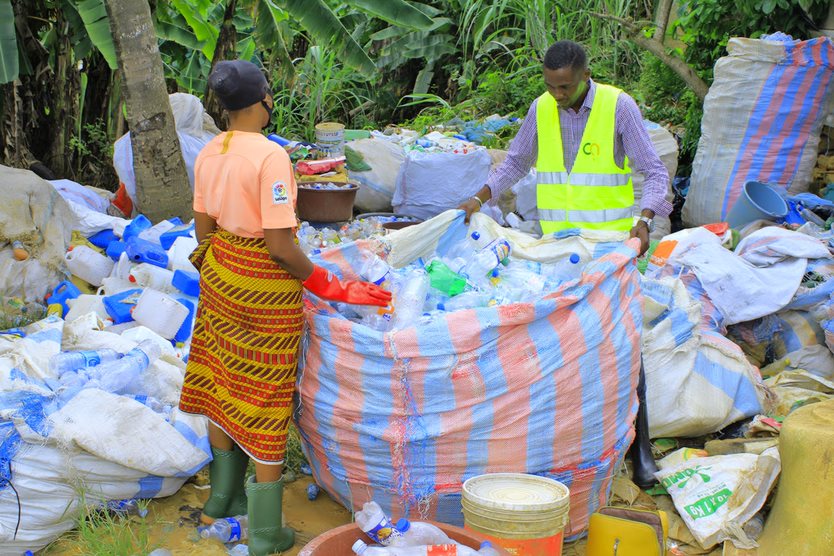New Knowledge Brief aims to Harness Technology in Circular Economy in Africa

The UN Climate Technology Centre and Network (CTCN), in collaboration with the Kenya Climate Innovation Center (KCIC) Consulting Ltd, launched a new regional knowledge brief, Harnessing Technology in the Circular Economy for Climate Action in Africa. The brief highlights the role of technology in supporting the circular economy, providing insight into technology-based solutions, including fostering support for an enabling environment that improves the uptake potential of circular technologies, practices, and policies.
Africa’s population is expected to double by 2050, reaching 2.5 billion, and the amount of waste generated on the continent could triple by 2050, exerting further pressure on resources, economic activities, and sustainable livelihoods. While 70–80 per cent of the municipal solid waste generated in Africa is recyclable, only 4 per cent is currently recycled, and only half of all waste generated is collected, much of it disposed of in dumpsites, rendering Africa home to 19 of the 50 world’s largest dumpsites.
Waste is one of the most pervasive products of the traditional economic model in which resources are mined, made into products, and then become waste. This damage can be reversed by adopting a circular economy model based on eliminating waste and pollution, repurposing materials at their highest value, and regenerating nature.
The knowledge brief launched today surveys technologies across African countries, sectors, and waste streams – such as organic, plastics, and e-waste – that can unlock new opportunities for circularity and ultimately reduce waste, pollution, and greenhouse gas emissions, advance economic development and job creation, bolster the roles of women, provide opportunities for youth, and benefit human and ecosystem health. These include:
- Textile recycling technologies that use recycled fibres for a variety of purposes are key to transforming the fashion and textile industries;
- Targeting the entire e-waste value chain, including value retention processes (collection, repair, upcycling and recycling) that are critical for the electronics sector;
- Resource efficient production through climate smart agriculture, hydroponics, solar-powered irrigation systems, and vermicomposting/worm composting can support more circular food systems;
- Bioclimatic – designing buildings based on the local climate – and modular building design can significantly contribute to material efficiency and greenhouse gas emissions reductions in the built environment;
- Digital apps and platforms to support the above sectors to increase transparency on the process and enable secondary material suppliers and buyers to find each other.
Countries such as Côte d’Ivoire, Egypt, Ghana, Kenya, Morocco, South Africa, and Tanzania, among others, are pioneering circular economy technologies as the concept gains momentum at the national level. Successful technology adoption and scale-up largely depends on the national or local context, as technologies integrate into a system of material (or waste) availability and resource demand, and may require physical or digital infrastructure. www.ctc-n.org
The knowledge brief showcases circular economy technology opportunities that exist along the material value chain, from product conception and production to distribution and consumption to end-of-life, and both high- and low-tech circular economy solutions.
“Africa is well positioned to make the circular economy transition. Many of the practices that are considered part of the circular economy are intrinsic and integral to many African nations and cultures. Africans are both resourceful and innovative, and their adoption of more circular practices is even more urgent with the onset of climate change. This model is disrupting business as usual, calling for a whole-of-system approach to sustainable development,” said Rose Mwebaza, Director of the CTCN.
“The circular economy low and high-tech solutions showcased in this report, often developed by grassroots innovators, are a reminder of the capacity and potential of the African continent and its communities in creating economic development solutions which are effective, sustainable, and inclusive. From reducing food loss in Kenya, to the usage of alternative and local building materials in Côte d’Ivoire, and anything in between, when it comes to technology for circular economy, the sky is the limit,” said Prabhakar Vanam, CEO, KCIC Consulting Ltd.
The Knowledge Brief – Harnessing Technology in the Circular Economy for Climate Action in Africa – is available here.





